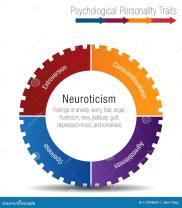Why is research needed in clinical psychology?
Research plays a vital role in clinical psychology for several reasons, emphasizing its importance in advancing the field and improving mental healthcare:
Evidence-Based Practice: Research provides the scientific foundation for evidence-based practice in clinical psychology. It allows clinicians to make informed decisions about assessment, diagnosis, and treatment based on empirical evidence rather than solely relying on intuition or tradition.
Treatment Efficacy: Research helps identify which treatment approaches and interventions are most effective for specific psychological disorders. It allows clinicians to select treatments with a higher likelihood of success, leading to better outcomes for clients.
Treatment Development: Research contributes to the development of new and improved therapeutic techniques and interventions. This innovation is essential for addressing emerging mental health challenges and refining existing treatments.
Quality Improvement: Continuous research helps improve the quality of mental healthcare. Clinicians can incorporate the latest research findings into their practice, ensuring that clients receive the best available care.
Diagnostic Accuracy: Research aids in the development and validation of diagnostic tools and assessment instruments, enhancing the accuracy and reliability of psychological assessments. This is crucial for proper diagnosis and treatment planning.
Understanding Etiology: Research helps uncover the underlying causes and risk factors associated with mental disorders. This knowledge is essential for prevention efforts and early intervention strategies.
Tailoring Interventions: Research allows clinicians to tailor interventions to individual clients. It helps identify factors that may influence treatment outcomes, such as cultural, demographic, or personality variables.
Monitoring Progress: Ongoing research can help establish benchmarks for treatment progress and recovery. Clinicians can use standardized measures to track their clients' improvement and adjust treatment plans as needed.
Multidisciplinary Collaboration: Clinical psychology often intersects with other fields, such as neuroscience, genetics, and sociology. Research facilitates collaboration with experts from these disciplines, leading to a more comprehensive understanding of complex mental health issues.
Professional Development: Engaging in research can enhance the professional development of clinical psychologists. It encourages critical thinking, problem-solving, and a commitment to lifelong learning.
Ethical and Informed Practice: Research findings inform ethical decision-making in clinical practice. Clinicians can make more informed choices about issues like informed consent, confidentiality, and the appropriate use of interventions.
Public Policy and Advocacy: Research can influence public policy and funding decisions related to mental health. Well-supported research findings can be used to advocate for improved mental healthcare services and resources.
In summary, research is essential in clinical psychology because it ensures that the field evolves, adapts to new challenges, and provides the highest level of care to individuals with mental and emotional disorders. It serves as the foundation for evidence-based practice, treatment innovation, and continuous improvement in the field of mental health.
The Vital Role of Research in Advancing Clinical Psychology
Research is essential to the advancement of clinical psychology. It helps us to better understand mental disorders, develop new and effective treatments, and improve the delivery of mental health services.
Here are a few specific examples of how research has advanced clinical psychology:
- Research has helped us to identify the causes and risk factors for mental disorders. This knowledge has led to the development of more effective prevention and early intervention programs.
- Research has helped us to develop new and effective treatments for mental disorders. For example, research has led to the development of cognitive-behavioral therapy (CBT), which is one of the most effective treatments for a variety of mental disorders, including depression and anxiety.
- Research has helped us to improve the delivery of mental health services. For example, research has led to the development of evidence-based practices, which are treatments that have been shown to be effective in research studies.
Why Research Matters: Contributions of Scientific Inquiry in Clinical Psychology
Research matters in clinical psychology because it helps us to provide the best possible care to our clients. By staying up-to-date on the latest research, clinicians can ensure that they are using the most effective treatments and that they are delivering their services in the most effective way possible.
Research also helps us to identify new areas of need and to develop new interventions to meet those needs. For example, research on the effects of trauma on children has led to the development of new trauma-focused therapies.
Bridging Theory and Practice: The Importance of Research in Clinical Psychology
Research is important in clinical psychology because it helps to bridge the gap between theory and practice. By understanding the latest research findings, clinicians can better understand the disorders that they treat and can develop more effective treatment plans for their clients.
Research also helps clinicians to stay informed about the latest trends and developments in the field of clinical psychology. This allows clinicians to provide their clients with the most up-to-date and effective care possible.
Conclusion
Research is essential to the advancement of clinical psychology. It helps us to better understand mental disorders, develop new and effective treatments, and improve the delivery of mental health services. By staying up-to-date on the latest research findings, clinicians can provide their clients with the best possible care.













